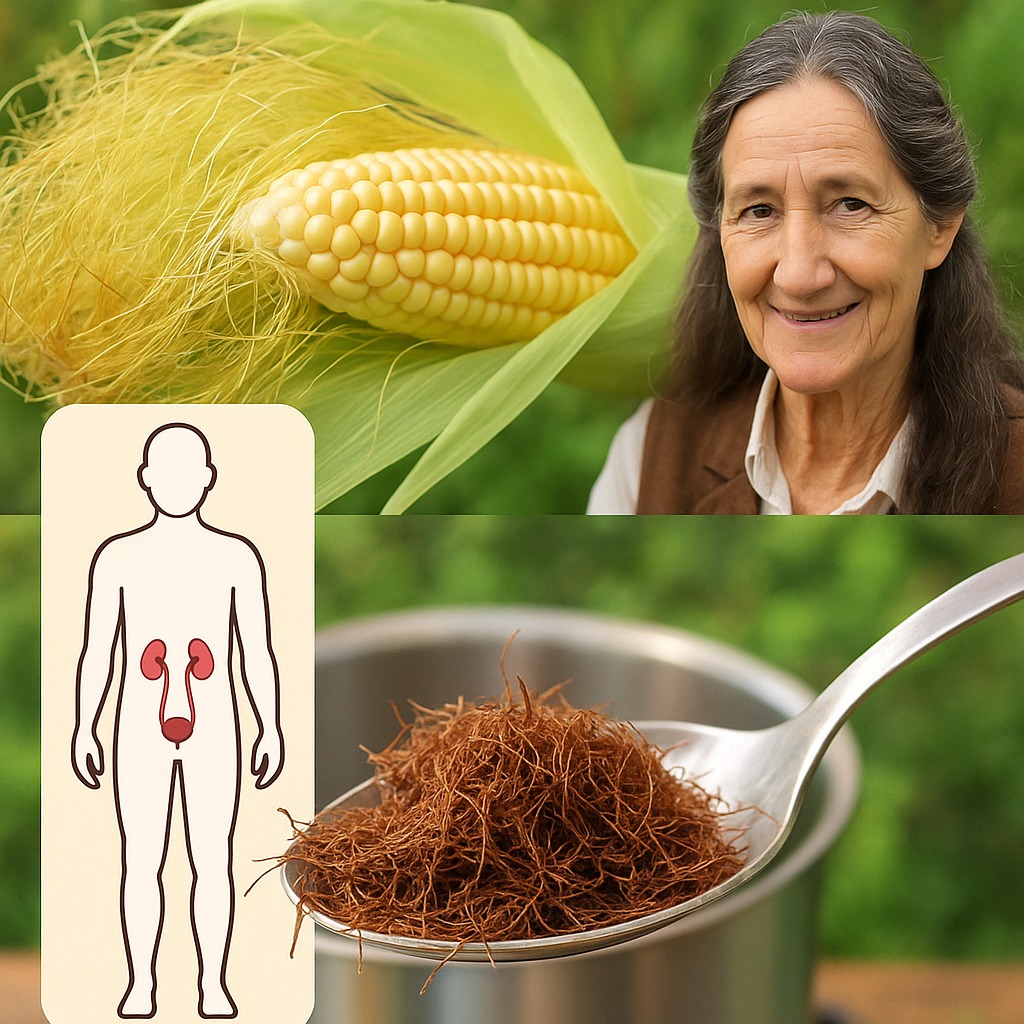🔥 Stomach acid, indigestion, bloating—these common issues plague millions. But did you know that a simple plant growing along fences, fields, and roadsides might hold natural relief?
The plant in the image above is Horseweed, also known as Conyza canadensis, a tall and slender herb often mistaken for an invasive weed. But in traditional herbal medicine, especially among Native American and folk healers, horseweed is cherished for its anti-inflammatory, digestive-soothing, and gut-protective properties.

Let’s explore how horseweed can help your stomach feel better and how to prepare it for safe and effective use.
—
🌿 What Is Horseweed?
Horseweed is a fast-growing plant with narrow lance-shaped leaves and small greenish-white flower heads. It grows up to 1–2 meters tall and thrives in disturbed soils, roadsides, or garden beds. Though it’s easy to overlook, it’s packed with natural medicinal compounds:
✔️ Tannins – help tighten and heal irritated tissues
✔️ Flavonoids – anti-inflammatory and antioxidant properties
✔️ Terpenes – support digestion and reduce bloating
✔️ Volatile oils – gently calm the stomach
Traditionally, it’s been used for acid reflux, ulcers, internal bleeding, diarrhea, and gastric inflammation.
—

🔥 Top Health Benefits of Horseweed for Digestion
1️⃣ Soothes Gastric Inflammation
Horseweed has natural anti-inflammatory action, which may help calm gastritis and reduce discomfort from stomach acid irritation.
✅ How to use: Make a mild tea and sip slowly on an empty stomach.
2️⃣ Helps with Acid Reflux and Heartburn
The astringent nature of horseweed tones the stomach lining, offering protection from excess stomach acid.
✅ How to use: Drink warm tea 20–30 minutes before meals if prone to reflux.
3️⃣ Aids Ulcer Healing
Its tannins help tighten tissue and reduce internal bleeding, supporting ulcer recovery when used regularly in moderation.
✅ How to use: Combine with soothing herbs like marshmallow root or chamomile for greater effect.
4️⃣ Reduces Bloating and Gas
Horseweed’s essential oils help relax digestive muscles and reduce fermentation in the gut—helping relieve gas buildup.
✅ How to use: Sip after meals to ease bloating or fullness.
5️⃣ Helps Diarrhea and Loose Stools
Thanks to its gentle astringency, horseweed may help reduce excess fluid in the gut and firm up stools naturally.
✅ How to use: Brew a slightly stronger tea and drink 1–2 times daily during acute symptoms.
—
🍵 How to Make Horseweed Tea
✨ Ingredients:
- 1–2 teaspoons dried leaves or flowering tops (or a small handful of fresh herb)
- 1 cup boiling water
✨ Directions:
- Pour hot water over the herb
- Cover and steep for 10–15 minutes
- Strain and sip slowly
- Optional: Add honey or ginger to improve flavor
☕ Drink once daily for general digestion or up to twice daily for active symptoms.
—
⚠️ Safety and Precautions
✔️ Always harvest from clean, pesticide-free areas
✔️ Avoid during pregnancy or while breastfeeding
✔️ Start with small amounts—horseweed is potent
✔️ Do not use continuously for more than 2–3 weeks without a break
✔️ Not for use by people with kidney disease unless guided by an herbalist
—
🌱 Other Traditional Uses of Horseweed
- Used externally for wounds and insect bites (as a poultice)
- Acts as a natural styptic to reduce bleeding
- Historically smoked or infused for lung and sinus conditions
- May be useful as a mild diuretic for water retention
—
🌿 Final Thoughts
Horseweed may look like an ordinary wild plant, but its powerful digestive benefits make it anything but. In the age of expensive antacids and synthetic medications, this humble herb offers a natural way to soothe your gut, calm inflammation, and support long-term stomach health.
So next time you spot this tall, leafy plant growing along the edge of your garden—pause. That might just be nature’s answer to your digestive troubles.
✨ Because sometimes, the best medicine isn’t in a bottle—it’s rooted in the earth. 🍵🌿🔥


